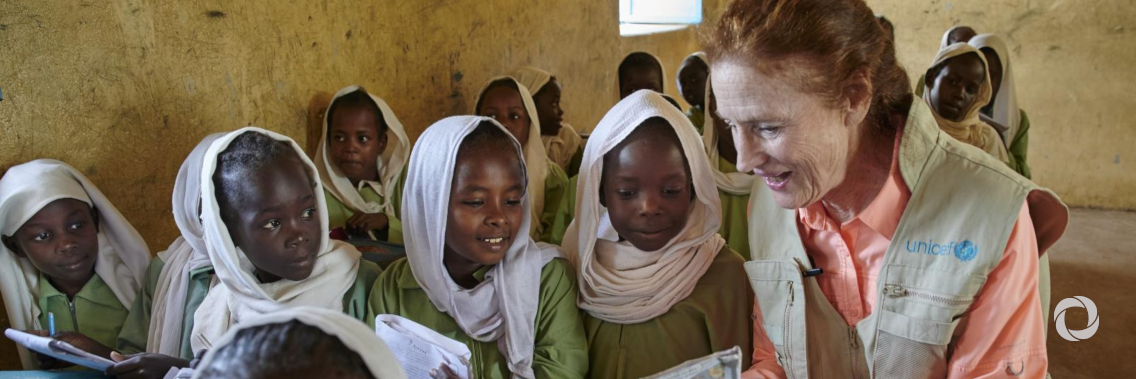Sudan is at a historic moment and it is critical that children’s rights are at the heart of the national agenda, UNICEF Executive Director Henrietta Fore said at the end of a three-day visit to the country.
“This is a defining moment,” Fore said. “Moving forward, as Sudan starts the next chapter in its history, it is critical that it reconfirms its commitment to its youngest citizens by putting children and young people front and centre.”
Decades of conflict and underdevelopment have left millions of children vulnerable:
- Over 38 percent of children, under-five years are believed to be stunted (too short for their age). Some 17 percent are wasted (too thin for their height).
- Approximately 120 children die every day due to undernutrition and related causes.
- 2.6 million children need humanitarian assistance.
- Nearly 1 million children were displaced in 2019.
- 3.6 million children out of school, mostly in conflict-affected areas.
In her discussions with the authorities, Fore stressed the need to prioritize children’s needs including by strengthening action against malnutrition, addressing the education crisis, and increasing investments in children and young people.
In Kadugli, Fore also met with children who were separated from their families as a result of the conflict. She also spoke with partners who work to demobilize children formerly involved in the fighting and help reintegrate them in their communities, with support from UNICEF.
“The recruitment and use of children in armed forces and armed groups in Sudan must end,” she said. “UNICEF is working with all parties to get children away from the front lines and back in their communities.”
Fore also me with adolescents and young people, in both Khartoum and South Kordofan, who told her about their hopes for their future and that of their country.
Original source: UNICEF
Published on 29 October 2019

